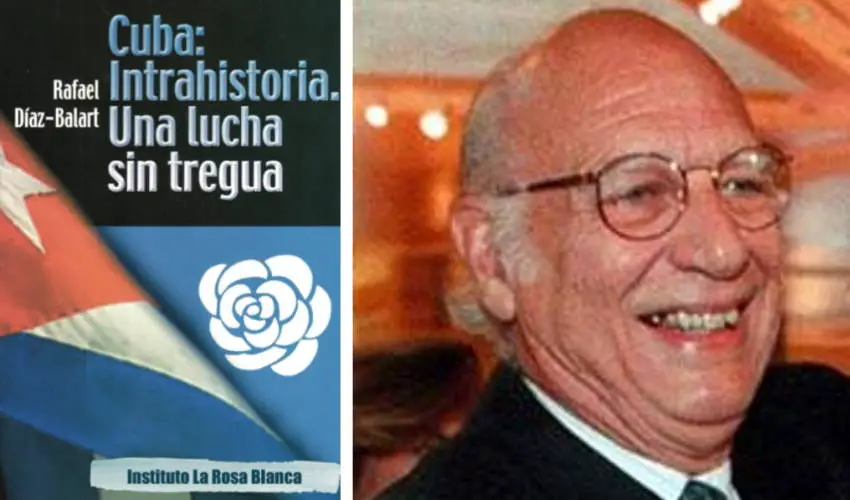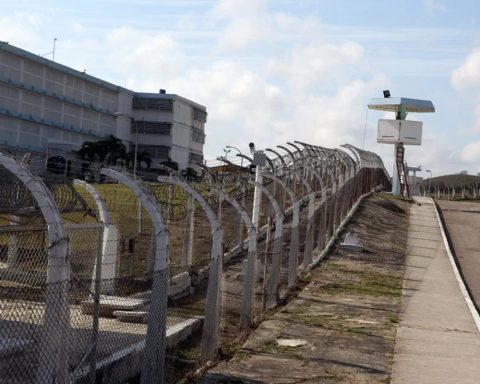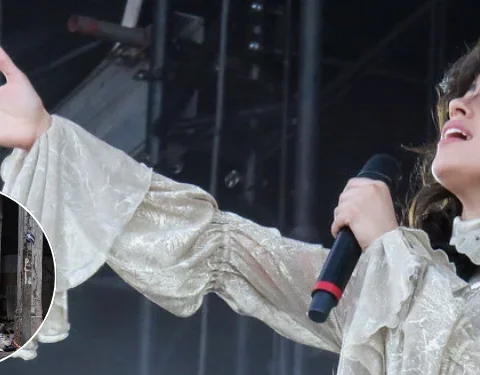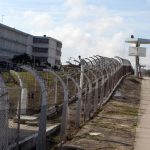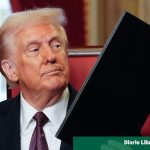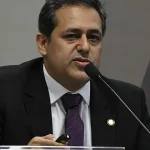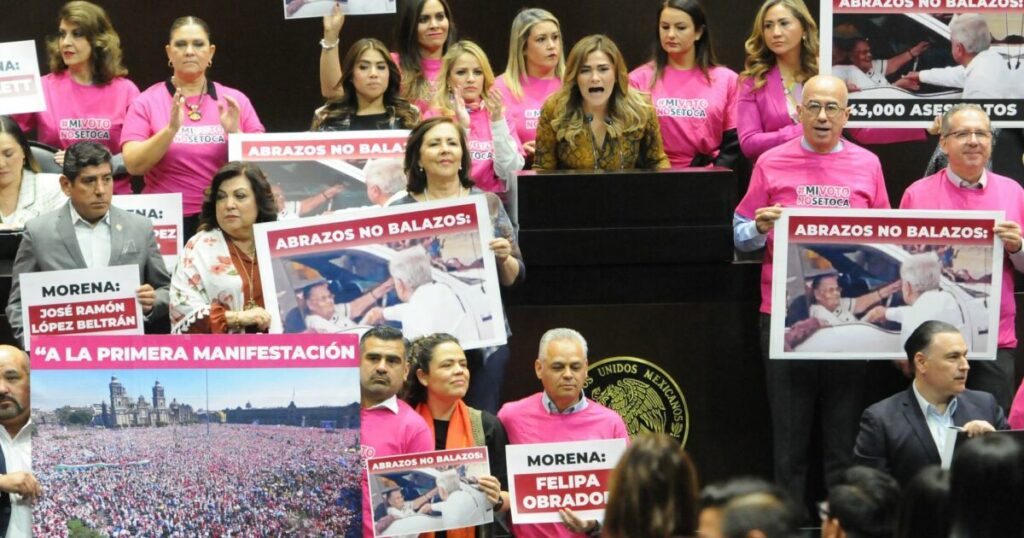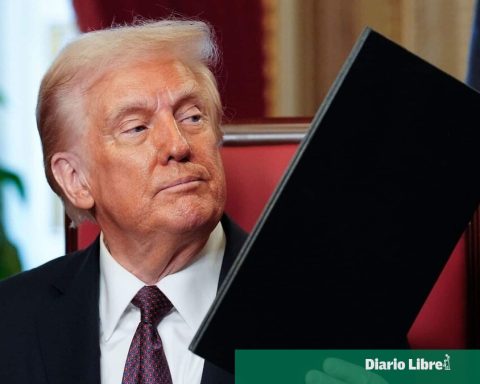Havana Cuba. — A few months ago, the La Rosa Blanca Institute published the second edition of Cuba: Intrahistory. A fight without trucethe memoirs of the Cuban lawyer and politician Rafael Diaz-Balart (1926-2005), one of the main figures of the anti-Castro exile.
Rafael Díaz-Balart, who was president of the majority parliamentary committee in the House of Representatives between 1954 and 1958, is particularly well known for a speech he gave in May 1955, in which, when opposing the granting of amnesty to Fidel Castro and others assailants to the Moncada Barracks, warned that if Castro came to power that would imply the establishment of a totalitarian dictatorship.
On that occasion, Díaz-Balart, referring to Fidel Castro and his companions, who from prison did not hide their intentions to continue appealing to the armed struggle, said: “They do not want peace. They don’t want a national solution of any kind, they don’t want democracy or elections or brotherhood. Fidel Castro and his group only want one thing, power, but total power that allows them to definitively destroy all traces of the Constitution and the law in Cuba to establish the cruelest, most barbaric tyranny, a tyranny that would teach the people the true meaning of what tyranny is, a totalitarian, unscrupulous, thief and murderer regime, which would be very difficult to overthrow for at least twenty years. Because Fidel Castro is nothing more than a fascist psychopath who could only agree from power with the forces of international communism, because fascism was already defeated in World War II and only communism would give Fidel the pseudo-ideological clothing to assassinate. , steal, violate all rights with impunity and to definitively destroy all the spiritual, historical, moral and legal heritage of our republic”.
And he announced: “This amnesty, so imprudently approved, will bring days, many days of mourning, pain, blood and misery to the Cuban people, even though that people themselves do not see it that way at this time.”
The clairvoyance that Rafael Díaz-Balart had with that warning that seemed exaggerated and to which no one paid attention is astonishing. But it is that Díaz-Balart knew Fidel Castro very well, who had been his friend and later his sister’s husband. myrtha.
Castro and Díaz-Balart met when they were very young, when they were studying law at the University of Havana. They became friends playing basketball. Together they participated in student politics, which was more like a gang war, so in order to confront the Revolutionary Socialist Movement that controlled the University, they became members of the Revolutionary Insurrectionary Union. It was thus that Díaz-Balart discovered Fidel Castro’s sick desire for notoriety and leadership and his violent personality.
Rafael Díaz-Balart refers to all this and more at the beginning of his memoirs, which continue to narrate his political career in the 1950s and culminate with the activities he carried out in exile after 1959.
These memories are very enlightening to better understand Cuban history from the 1940s to the present. It would be worthwhile for them to be read by the many people who cannot overcome their rejection of everything that has anything to do with the Fulgencio Batista regime.
These people will be very surprised to learn that Fidel Castro, before joining the Youth of the Orthodox Party, considered the possibility of joining Batista’s Unitary Action Party (PAU) if he was willing to carry out a coup. If he did not join the PAU, it was because, in one of his many miscalculations, he thought that Batista would not dare to overthrow the government of Carlos Prío by force.
Díaz-Balart refers that it was he, in his capacity as leader of the PAU Youth, who took his brother-in-law Fidel to meet Batista at his Kuquine farm. Fidel, who sounded out Batista and suggested that he read The coup technique, by Curzio Malaparte, left the match disappointed. He told Díaz-Balart: “Look, Rafael, that man is not going to carry out a coup, so I am not interested in joining you. I am going to join the Orthodox Party, which is going to get more representatives than the PAU. And also, at a certain moment, Chibás can be given a push or whatever, while Batista cannot”.
Many will learn from this book that before the assault on the Moncada Garrison, Fidel Castro, who was not practicing as a lawyer, supported his family thanks to the check from the Ministry of the Interior that he received each month in the name of his wife Mirtha Díaz-Balart, which that made him a bottle rack for the Batista regime.
There are many more surprising things in Díaz-Balart’s memoirs. For example, the important role in the arms embargo against the Batista regime that, in his position as Director of Caribbean and Mexican Affairs of the State Department, was played by William Weyland, the son of a Cuban and an American, whose real name was Guillermo Montenegro Weyland, and that he had been a member of a cell of the Cuban Communist Party in the 1930s.
President Eisenhower issued a presidential order asking for pressure to get rid of Batista, which was delivered to Secretary of State John Foster Dulles, who passed it on to Roy Rubottom, Under Secretary of State for Latin America, and he to Weyland.
Contrary to what the Castro narrative says, the United States, far from being hostile to Fidel Castro’s revolution, initially welcomed it favorably. In the first months of the establishment of the revolutionary regime, the US authorities harassed the anti-Castro exiles in the United States and hindered their activities. In fact, when Díaz-Balart created La Rosa Blanca in New York, the first of the organizations opposed to the Fidel Castro regime, he had to operate in clandestine conditions, eluding FBI surveillance.
In his memoirs, Díaz-Balart narrates what happened on January 28, 1960, when he and several members of La Rosa Blanca were arrested by the New York police after being attacked by a mob of supporters of Castroism who destroyed the floral offering they had placed by the anti-Castroists on the monument to José Martí in Central Park.
In 1961, due to prejudice against those who had been linked to the Batista regime, members of La Rosa Blanca were excluded from the Revolutionary Democratic Front and the Bay of Pigs invasion. But they did not give up their fight for that. To all the exclusions, reproaches and misunderstandings, Rafael Díaz-Balart always responded: “There are only two types of Cubans, those who are patriots and those who are not.”
OPINION ARTICLE
The opinions expressed in this article are the sole responsibility of the person who issues them and do not necessarily represent the opinion of CubaNet.
